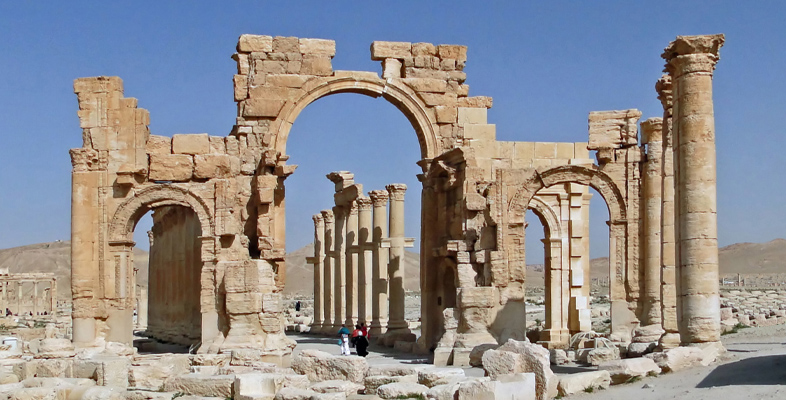Week 3: Weighing heritage against lives
Introduction
In Weeks 1 and 2 you looked at some of the ways in which the protection of cultural heritage can conflict with the protection of people, in both peace and wartime. For example, you saw that France, with limited resources, must choose whether to spend its money on restoring Notre-Dame Cathedral or on public services such as health care. You also considered the case of Monte Cassino in the Second World War, where Allied forces decided to destroy a historic abbey in an attempt to end a particularly bloody battle.
Dilemmas such as these, which pit human beings against heritage, are difficult to navigate. Some people believe that the defence of heritage could potentially justify allowing harm to human beings. Others disagree, arguing instead that the welfare of people should always take priority over the welfare of buildings. And yet, this position is complicated further by the existence of economic or ‘force-multiplier’ benefits that arise from heritage. These effectively mean that, sometimes, the best way to help humans is to help heritage first.
However, the central puzzle is this:
- Can heritage values ever outweigh the value of human lives?
- Is it true that, in a competition between lives and mere stones, sometimes the stones can win?
In this final week, you will explore some of the challenges involved in answering these questions. But first, you will examine an alternative – and surprisingly popular – response: to simply deny that this question needs answering at all.
